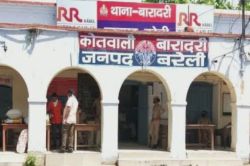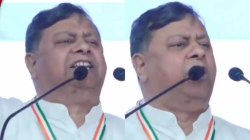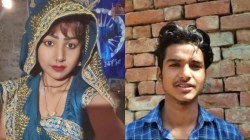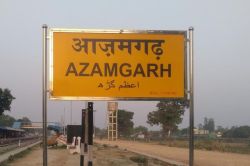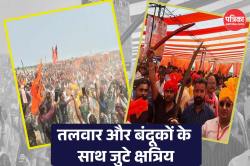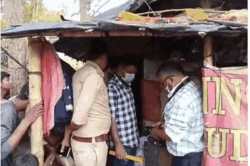13.04.2025..TODAY's...News of Untouchables .....अछूत समाचार.தீண்டாமை செய்திகள்.by Team சிவாஜி. शिवाजी .Shivaji.asivaji1962@gmail.com.9444917060.asivaji1961@gmail.com.facebook.sivajiyogatiruvannamalai.X.ShivajiA479023(in all languages)
From the India Today archives (2005): BR Ambedkar: The entry point to understanding Dalit politics
Ambedkar's birth anniversary (April 14) is a moment to revisit Christophe Jaffrelot's 2005 book about the man who gave hope and ambition to millions of 'untouchables' in India
(NOTE: This article was originally published in the India Today issue dated March 14, 2005)
Dr B.R. Ambedkar’s life gives us a privileged ingress into the world of Dalits and their social and political aspirations. Ambedkar’s relevance in India today may be controvertible but what is beyond doubt is that the path he trod gave hope and ambition to millions of ex-untouchables who were degraded for centuries in Hindu society.
Dalit History Month: 1936-2024 Journey—Bollywood’s Bold Films Mirroring Casteism; Must-Watch Masterpieces!

April marks Dalit History Month, a time to honor the sacrifices, struggles, and resilience of the Dalit community, which has fought tirelessly against caste oppression for centuries. It’s an occasion to reflect on their contributions and the inspiring stories of courage that continue to shape a more equitable society.
Cinema is a mirror of society, reflecting its triumphs and challenges, while societal realities deeply influence filmmakers. The two are intertwined. This Dalit History Month, let’s explore the Hindi films that powerfully depict the issue of casteism and the fight for justice. These films not only entertain but also provoke thought and inspire change. Here’s an in-depth look at some of the best Bollywood films to watch this month.
Achhoot Kanya (1936)
Directed by Himanshu Rai and produced by Bombay Talkies, Achhoot Kanya is a pioneering film in Indian cinema that boldly addressed casteism. Starring Devika Rani and Ashok Kumar, it tells the tragic love story of Pratap, a Brahmin boy, and Kasturi, a Dalit girl. Growing up as neighbors, their childhood friendship blossoms into love, only to be thwarted by societal prejudices and familial opposition.
The film’s heartbreaking conclusion highlights the rigid caste barriers of the 1930s. Achhoot Kanya was revolutionary for its time, challenging deep-seated caste norms and advocating for love beyond social divides. Its simplicity and powerful message make it a must-watch during Dalit History Month to understand the historical context of caste struggles.
Sujata (1959)
Directed by Bimal Roy, Sujata is a poignant and emotionally rich film that tackles casteism with sensitivity. The film has Mahatma Gandhi's fight against untouchability and the myth of Chandalika in Hinduism as its subtexts, based on which it tries to criticize the practice of untouchability in India.
Featuring Nutan and Sunil Dutt, it follows Sujata, a Dalit girl adopted by a Brahmin family. Though raised with affection, she is never fully accepted as an equal by the family or society. When Sujata falls in love with Adheer, an educated Brahmin, her caste becomes a barrier to their relationship.
The film beautifully weaves themes of love, family, and acceptance while questioning caste prejudices. Nutan’s stellar performance and Roy’s nuanced direction make Sujata a timeless classic. It challenges viewers to consider whether humanity and love can transcend caste boundaries, making it an essential watch this month.
Ankur (1974)
Shyam Benegal’s Ankur is a landmark in Indian parallel cinema, exposing the harsh realities of caste and class exploitation in rural India. The plot is based on a true story that occurred in Hyderabad, apparently in the 1950s. Starring Shabana Azmi and Anant Nag, the film centers on Surya, a landlord’s son, who arrives in a village to manage his father’s estate. There, he encounters Lakshmi, a Dalit woman, and her mute, alcoholic husband, Kishtaya.
Surya’s attraction to Lakshmi leads to her exploitation, highlighting the intersection of caste, gender, and feudal power dynamics. The film unflinchingly portrays the brutality of the caste system and societal inequities. Azmi’s powerful debut earned her a National Award, and Ankur remains a cinematic gem for its raw depiction of oppression, perfect for Dalit History Month.
Bandit Queen (1994)
Directed by Shekhar Kapur, Bandit Queen is a raw and controversial biopic based on the life of Phoolan Devi, portrayed brilliantly by Seema Biswas. Phoolan, a lower-caste woman, endures relentless caste-based and gender-based violence from childhood, culminating in a horrific gang rape by upper-caste men. Driven by rage and a quest for justice, she becomes a bandit, seeking vengeance against her oppressors. The film exposes the brutal realities of casteism, misogyny, and systemic injustice in rural India. Its unflinching realism shook audiences and earned critical acclaim.
The film won the National Film Award for Best Feature Film in Hindi, Filmfare Critics Award for Best Movie, and Best Direction for that year. The film premiered in the Directors' Fortnight section of the 1994 Cannes Film Festival, and was screened at the Edinburgh Film Festival. The film was selected as the Indian entry for the Best Foreign Language Film at the 67th Academy Awards, but was not accepted as a nominee.
Aarakshan (2011)
Prakash Jha’s Aarakshan is a thought-provoking drama exploring India’s caste-based reservation policy. Starring Amitabh Bachchan, Saif Ali Khan, Deepika Padukone, and Prateik Babbar, the film follows Prabhakar Anand, an idealistic college principal who supports affirmative action. The story delves into the tensions and debates surrounding reservations in education and jobs, revealing how caste continues to shape opportunities and conflicts. By presenting both sides of the issue—supporters and critics of reservation—Aarakshan offers a balanced yet compelling narrative. It encourages viewers to reflect on the historical roots of caste discrimination and its modern implications, making it a relevant choice for this month.
Masaan (2015)
Directed by Neeraj Ghaywan, Masaan is a lyrical and moving film set in Varanasi, weaving together stories of love, loss, and caste. Featuring Richa Chadha and Vicky Kaushal, it follows two parallel narratives. One focuses on Deepak, a Dalit boy from a cremation-ground worker’s family, who falls in love with Shaalu, an upper-caste girl, only to face societal barriers. The other tracks Devi, a woman challenging social norms. The film subtly portrays the pervasive impact of caste on personal aspirations and relationships, blending raw emotion with poetic storytelling. Acclaimed at Cannes, Masaan is a profound reflection on caste and individuality, ideal for this month.
Article 15 (2019)
Directed by Anubhav Sinha, Article 15 is a gripping police drama inspired by real-life caste-based atrocities, including the Badaun case in Uttar Pradesh. Ayushmann Khurrana stars as Ayan Ranjan, a Brahmin IPS officer posted in a rural village, where he investigates the rape and murder of two Dalit girls. His probe uncovers deep-seated casteism, police corruption, and societal apathy. The film draws its title from Article 15 of the Indian Constitution, which prohibits discrimination based on caste, religion, or gender. With its hard-hitting realism and powerful dialogues, Article 15 forces viewers to confront the persistence of caste violence in contemporary India, making it a must-watch during Dalit History Month.
Vedaa (2024)
Nikhil Advani’s Vedaa is a recent action-drama that resonates with themes of justice and empowerment. Starring John Abraham and Sharvari Wagh, it follows Vedaa, a Dalit girl who rises against the injustices faced by her community. Facing caste-based violence and oppression, she transforms into a fierce warrior, guided by a mentor (Abraham) who supports her fight. Blending high-octane action with emotional depth, Vedaa highlights casteism while celebrating resilience and resistance. Sharvari’s commanding performance and the film’s bold narrative have earned it praise, making it an inspiring choice.
Dalit History Month reminds us that cinema is more than entertainment—it’s a catalyst for awareness and change. From the groundbreaking Achhoot Kanya to the contemporary Vedaa, these films illuminate the long battle against casteism and celebrate the courage of those who resist. They urge us to question whether we are truly moving toward an inclusive society. This month, watch these films, engage with their messages, and share their stories to inspiration.

Read more at: https://www.deccanherald.com/india/uttar-pradesh/dalit-man-killed-in-prayagraj-attempt-made-to-burn-his-body-3491914
“…को ऐसे ही बारी-बारी से जिंदा जलाकर मारेंगे!” चंद्रशेखर का हैरान कर देने वाला सोशल मीडिया पोस्ट
Chandra Shekhar Azad on Dalit Boy Murder: उत्तर प्रदेश के प्रयागराज में दलित युवक की हत्या के बाद राजनितिक सरगर्मी बढ़ती ही जा रही है। अखिलेश यादव, अजय राय और मायावती के बाद अब चंद्रशेखर आजाद ‘रावण’ ने सरकार से अहम सवाल किए हैं। आइए बताते हैं उन्होंने क्या कहा ?
प्रयागराज•Apr 13, 2025 / 09:48 pm•
Nishant Kumar

Chandra Shekhar Azad
संबंधित खबरें
चंद्रशेखर आजाद रावण ने क्या कहा ?
लोकसभा सांसद चंद्रशेखर आजाद रावण ने सोशल मीडिया प्लेटफार्म ‘X’ पर लिखा कि उत्तर प्रदेश के जनपद प्रयागराज के थाना करछना क्षेत्र में कल, 12 अप्रैल 2025 की रात 10 बजे, जातिवादी मानसिकता से ग्रस्त कुछ गुंडे बहुजन युवक देवी शंकर को बोझा ढोने के बहाने घर से बुलाकर ले गए। आज सुबह 5:30 बजे, गांव के पूरब स्थित महुआ के बाग में उसकी जली हुई लाश मिली। यह कोई हादसा नहीं, बल्कि जातिवादी नफरत से भरे दरिंदों द्वारा की गई सुनियोजित हत्या है। आरोपियों ने पेट्रोल डालकर देवी शंकर को ज़िंदा जला दिया।उत्तर प्रदेश के जनपद प्रयागराज के थाना करछना क्षेत्र में कल, 12 अप्रैल 2025 की रात 10 बजे, जातिवादी मानसिकता से ग्रस्त कुछ गुंडे बहुजन युवक देवी शंकर को बोझा ढोने के बहाने घर से बुलाकर ले गए। आज सुबह 5:30 बजे, गांव के पूरब स्थित महुआ के बाग में उसकी जली हुई लाश मिली।
— Chandra Shekhar Aazad (@BhimArmyChief) April 13, 2025
यह कोई…
सीएम योगी से पूछे सवाल
चंद्रशेखर आजाद रावण ने आगे लिखा कि जातिवादी आतंक यहीं नहीं रुका — आज सुबह मृतक के घर पहुंचकर उसकी माँ और बहनों को गालियाँ दी गईं और धमकाया गया कि, “चमार मादर… सालों को ऐसे ही बारी-बारी से ज़िंदा जलाकर मारेंगे!” यह घटना अत्यंत दुखद और दंडनीय होने के साथ-साथ, जातिवादी हैवानियत और मृतप्राय कानून व्यवस्था का जीवंत प्रमाण है। मैं मुख्यमंत्री योगी आदित्यनाथ से पूछना चाहता हूं कि क्या दलित होना अब गुनाह है? कहां है कानून? कहां है संविधान? क्या प्रशासन इस नरसंहार की खुली चुनौती को स्वीकार करेगा या मौन रहेगा?दलित युवक की हत्या पर मचा सियासी घमासान, कांग्रेस ने CM Yogi को कहा ‘सत्ताभोगी’
सरकार से की ये मांग
चंद्रशेखर आजाद ने अपने पोस्ट में सरकार से मांग कि और लिखा कि मैं उत्तर प्रदेश सरकार से मांग करता हूं कि सभी हत्यारों को तत्काल गिरफ्तार किया जाए। हत्या, षड्यंत्र और SC/ST अत्याचार निवारण अधिनियम की कठोरतम धाराओं में मुकदमा दर्ज किया जाए। फास्ट ट्रैक कोर्ट में सुनवाई हो। पीड़ित परिवार को सरकारी सुरक्षा, समुचित मुआवज़ा व एक सदस्य को सरकारी नौकरी दी जाए और पूरे गांव में भय का माहौल समाप्त कर, दलितों की सुरक्षा सुनिश्चित की जाए।संबंधित विषय:
"You will burn it alive in turn like this!" Chandrasekhar's shocking social media post
Chandra Shekhar Azad on Dalit Boy Murder: Political stir is increasing after the murder of a Dalit youth in Prayagraj, Uttar Pradesh. After Akhilesh Yadav, Ajay Rai and Mayawati, now Chandrashekhar Azad 'Ravana' has raised important questions to the government. Let's say what he said?
Prayagraj • Apr 13, 2025 / 09:48PM •
Nishant kumar
Chandra Shekhar Azad
Chandra Shekhar Azad on Dalit Boy Murder in Prayagraj: After the murder of a Dalit youth in Prayagraj, Uttar Pradesh, the mercury of politics in the state is going on. After Samajwadi Party, Bahujan Samaj Party and Congress, Azad Samaj Party national president and Lok Sabha MP from Nagina Chandrashekhar Azad has strongly attacked the government.
Related news
In BareillyDeadly attack on the general minister of Hindu Yuva Vahini, FIR on 15, police investigation engaged in police investigatio
Congress candidate Alok Mishra said- Kharge saheb, Rahul Gandhi I want to ask you, one son in BJP in SP
Shivani became Shabnam in Amroha, married 17 -year -old Shiva, Panchayat approve
Azamgarh News: Ruckus over the murder of Dalit youth, villagers arrived in hundreds of SP officeSieg
AGRA: Kshatriya gathered with swords and guns in the blood honor conference, traveled towards SP leader's house at 5 pm!
Heartbreaking incident in Ayodhya… Dreadful death to wife and son, crowd shocked to see dead bodies
What did Chandrashekhar Azad Ravana say?
Lok Sabha MP Chandrashekhar Azad Ravana wrote on the social media platform 'X' that the police station of Prayagraj district of Uttar PradeshYesterday, at 10 pm on 12 April 2025, some goons suffering from casteist mentality called Bahujan youth Devi Shankar from home on the pretext of carrying a burden. At 5:30 am today, his burnt corpse was found in the garden of Mahua in the east of the village. This is not an accident, but a well -planned murder committed by racist hatred. The accused burnt Devi Shankar alive by putting petrol.
Police station of Prayagraj district of Uttar PradeshIn the Karchana region, yesterday, at 10 pm on 12 April 2025, some goons suffering from casteist mentality called Devi Shankar from home on the pretext of carrying a burden. At 5:30 am today, his burnt corpse was found in the garden of Mahua in the east of the village.
This is any…
- Chandra Shekhar Aazad (@Bhimarmychief) April 13, 2025
Questions asks CM Yogi
Chandrashekhar Azad Ravana further wrote that casteist terror did not stop here - this morningOn reaching the deceased's house, his mother and sisters were abused and threatened that, "Chamar Madar ... will kill years by burning them alive in turn!" Along with being extremely tragic and punishable, this incident is a lively proof of casteist cruelty and dead law and order. I want to ask Chief Minister Yogi Adityanath whether it is a crime to be a Dalit now? Where is the law? Where is the constitution? Is the administration open of this massacreWill the challenge accept or silent?
Political boast over the murder of a Dalit youth, Congress called CM Yogi 'power to'
This demand from the government
Chandrashekhar Azad demanded the government in his post and wrote that I demand from the Uttar Pradesh government that all the killers should be arrested immediately. A lawsuit should be filed under the rigorous sections of the murder, conspiracy and SC/ST Atrocities Prevention Act.There should be a hearing in fast track court. The victim's family should be given government safety, proper compensation and a government job to a member and safety of Dalits should be ensured by ending the atmosphere of fear in the entire village.
Mayawati calls for Buddhist control of Mahabodhi temple
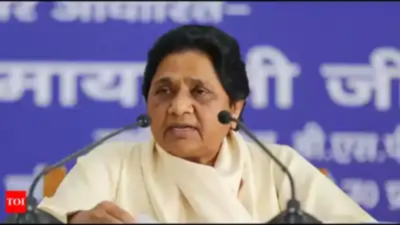

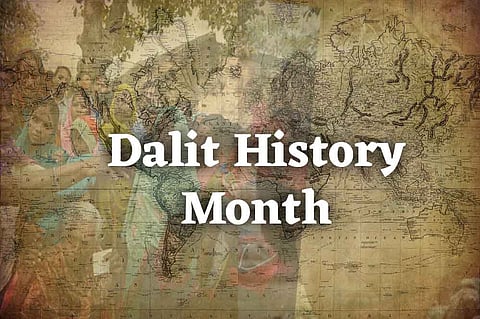
New Delhi- India's constitutional commitment to equality fails to prevent ongoing caste-based discrimination against Dalits. Legal frameworks evolved while numerous individuals maintain unchanged beliefs. The recent incident involving Shivam Sonkar—a Dalit scholar who achieved second place in his PhD, the Banaras Hindu University entrance exam exposes the harsh reality that caste continues to control access to opportunities.
This article examines the persistent discrimination against Dalits alongside their democratic struggle, the necessity of reservations, and Dr. Ambedkar’s enduring influence.
India continues to struggle with caste-based exclusion even after seventy-five years of independence. Legal frameworks prohibit untouchability, yet real-world conditions contradict this narrative. Members of the Dalit community face exclusion in society.
Take Shivam Sonkar’s situation: Despite being top-ranked, he was rejected from BHU’s Ph.D. program. The reason? His Dalit identity. These incidents reveal the operation of caste bias within prestigious institutions.
Reports indicate that Dalits still encounter discriminatory practices across educational institutions, professional environments, and social interactions. Members of lower castes remain trapped in demeaning employment while facing violent assaults for temple entry and brutal attacks for pursuing dreams beyond their caste restrictions.
"Democracy is meaningless unless it stands for the recognition of the dignity of every individual."
Democracy for Whom? When Equality is an Illusion
Every Indian citizen theoretically enjoys fundamental rights under the Constitution, but Dalits frequently remain excluded from these legal protections. The democratic system, designed to uplift marginalised groups, instead betrays their interests.
Dalits encounter political exclusion along with systemic violence and social rejection despite their constitutional rights. Requests for dignity by these individuals result in responses of threats, humiliation, and potential fatal outcomes. Indian society has deeply entrenched caste structures that obstruct the achievement of genuine equality.
Why does this discrimination persist? Because casteism is not just a system; it is a mindset. Laws can change, but attitudes take generations to evolve. Until society indeed acknowledges its biases, Dalits will remain second-class citizens in their own country.
Why Reservation? Breaking the Myth of "Merit"
A common question posed by critics is why Dalits continue to require reservations. What reasons exist for prioritising caste-based quotas over merit?
The straightforward explanation is that caste discrimination remains prevalent. Merit loses its significance when systemic barriers prevent access to opportunities. Historically, Dalits faced systemic exclusion from educational opportunities, job markets, and economic advancement. The purpose of reservations is to create equality by adjusting a historically skewed playing field, rather than providing them with undeserved benefits.
Absent reservation systems, dominant caste groups would maintain control over institutions, resulting in total exclusion of Dalits. Dalits encounter numerous barriers, including discrimination and isolation, along with inadequate institutional support despite existing reservation policies. The situation of Shivam Sonkar demonstrates that Dalits remain vulnerable to caste discrimination despite their achievements.
"Turn in any direction you like, caste is the monster that crosses your path."

Think for a moment about an India without Dr B.R. Ambedkar. Would democracy, socio-economic justice, and constitutional rights exist authentically?
Dr. Ambedkar was born into a Dalit family and faced humiliation at various points in his life. Yet, he emerged as the chief architect of India's constitutional framework, which empowered all people, regardless of caste, to have equal rights. Ambedkar's vision was not merely about laws; it was about dignity. He worked for women’s rights, labor rights, and the annihilation of caste.
Ambedkar contributed to modern India's development, but many who use these rights today fail to appreciate that they became entitlements through a Dalit leader. It is ironic that those opposed to reservations and Dalit rights conveniently overlook the fact that the Constitution was written by a Dalit.
"The progress of any society can be measured by the position of its weakest members."
Beyond Caste: The Urgency of Humanity
The matter of casteism concerns more than Dalits—it is a matter of humanity. Until India is prepared to identify people as 'people' and not castes, there can be no genuine democracy.
According to political scientist Dr. Hanumanthappa D.G., Ambedkar's philosophy was based on the universal human rights of all people. The principles of liberty, equality, and fraternity should be the foundations of India today.
The question becomes: are we really ready to live these principles? Are we, as a society, really ready to forego caste prejudice and elevate the human dignity of all people? It is time for India to choose. Shall we continue to subjugate a portion of our own people? Or shall we finally be ready to rise above caste and adhere to the humanity that joins us all?
The untouchable truth is that caste discrimination is far from finished. However, it is not simply the burden of Dalits alone to fight it; it is a fight for any Indian who believes in an idea of equality and justice.
History will judge us by how we treat the most marginalised. The choice is clear: either we uphold the Constitution and Ambedkar's vision of India, or remain bequeathed to a past of oppression.
Will India break the caste system? Or will we continue to let down our own? The answer rests in whatever we decide to do next.
- Poornima is a passionate academic with an M.A. in Political Science from the University of Lucknow and UGC NET-qualified Assistant Prof.
Rajasthan.

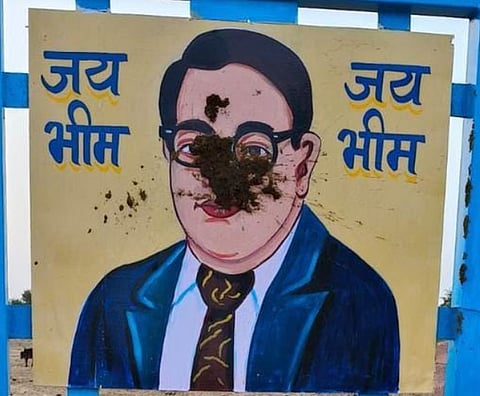
Bikaner- A shameful incident of defacement of Dr. B.R. Ambedkar’s statue has come to light in Noorsar village of Rajasthan’s Bikaner district. The act, where miscreants smeared black paint on the statue, occurred on April 13, 2025, just a day before the birth anniversary of the Constitution’s architect, sparking widespread outrage among locals and social organizations.
According to police sources, Bichhwal SHO Govind Singh Charan and his team promptly reached the site and initiated an investigation. Preliminary findings suggest that some anti-social elements carried out the act with the intent to insult the statue. The police have detained one individual in connection with the case, and the investigation is ongoing. Under the supervision of Bikaner SP Kavendra Singh Sagar, efforts have been intensified to address the matter.
Strongly condemning the incident, Rajasthan’s Leader of Opposition, Tikaram Jully, expressed his anger on the social media platform X. He wrote, “This is an insult, this is an atrocity, this is intolerable. It is not just black paint but a deep blow to the dignity of Dalits and the Constitution. The incident of smearing black paint on the statue of Constitution maker Baba Saheb Dr. Bhimrao Ambedkar in Noorsar (Bikaner), a day before his birth anniversary, is utterly condemnable and painful. I denounce this shameful act in the strongest terms.”
Jully further stated that Baba Saheb is not just an individual but the hope and voice of millions of Dalits, marginalized, and oppressed people. An attack on his statue is not merely an assault on a monument but on the Constitution that guarantees equality, justice, and fairness. Targeting the BJP government, he said such incidents are attempts to divide society and undermine the democratic foundation of India. He demanded that the government take immediate cognizance of the matter and ensure the strictest action against the culprits, including their prompt arrest.
Local residents and social organizations have also expressed deep resentment over the incident. Given the tension in Noorsar and surrounding areas, the police have tightened security arrangements. Social activists have called for concrete measures to prevent such incidents and demanded stringent punishment for those responsible.
The police have assured that a thorough investigation is underway, and no guilty party will be spared.
 Get breaking news alerts, subscribe now
Get breaking news alerts, subscribe nowParliament committee on SC/ST welfare visits DU to assess compliance with reservation norms
The Democratic Teachers' Front has claimed that there is a systemic denial of appointments at Delhi University for candidates from reserved categories.
 “DU has failed to fulfil its constitutional obligation to reservation,” a DTF note presented to the Committee stated.
“DU has failed to fulfil its constitutional obligation to reservation,” a DTF note presented to the Committee stated.The Parliamentary Committee on the Welfare of Scheduled Castes and Scheduled Tribes Friday visited Delhi University and held a series of meetings with faculty members to assess the varsity’s compliance with constitutional mandates on reservation in faculty appointments nd administrative posts.
The visit was formally announced through a university circular dated April 8, which listed 16 faculty members from across DU’s colleges and departments who were called to interact with the Committee.
The stated agenda was to “discuss the matters with regard to implementation of reservation policy in admissions, in filling up the teaching and non-teaching positions and other measures undertaken to safeguard the rights of persons belonging to scheduled castes and scheduled tribes”.
Speaking to The Indian Express, a higher official said on the condition of anonymity, “The University has shared a presentation with the Committee with all data of representation of SC/ST persons across different posts in colleges.
We currently have at least four principals who belong to the SC/ST community. There was a discussion about following the roster for appointments and it has been conveyed that since the selection process has begun at the varsity, there has been no violation of any rules.”
Meanwhile, the Democratic Teachers’ Front (DTF) alleged systemic denial of reserved category appointments due to reasons like “not found suitable (NFS)” candidate, “no candidate shortlisted (NCS)”, contractualisation, and roster manipulation.
“DU has failed to fulfil its constitutional obligation to reservation,” a DTF note presented to the Committee stated.
Drawing from Executive Council records and internal hiring data, the teachers flagged that despite the availability of qualified candidates from SC/ST/OBC/EWS categories, multiple positions across departments remained unfilled.
“For professor-level posts, 62 per cent were marked NFS,” one submission noted, attaching pie charts and recruitment tables.
Speaking to The Indian Express, Mithuraj Dhusia from Hansraj College said, “We had provided some database that we collected to the parliamentary committee to which the committee said it will go through and flag gaps, if any, to the varsity.”
“The University must necessarily review the revised criteria adopted for shortlisting,” the memorandum demanded.
The teachers also raised concern over the increasing contractualisation of jobs, warning that it was leading to dereservation.

